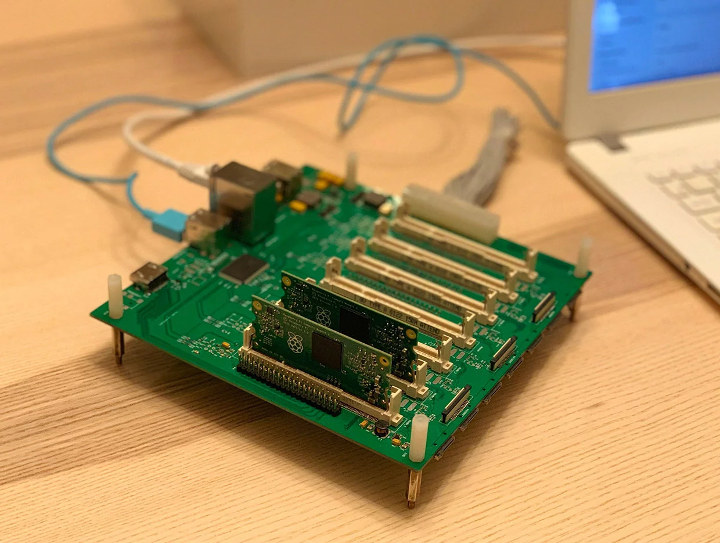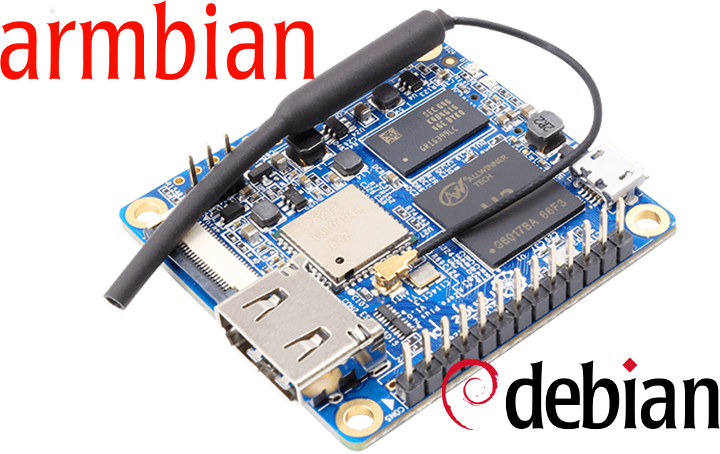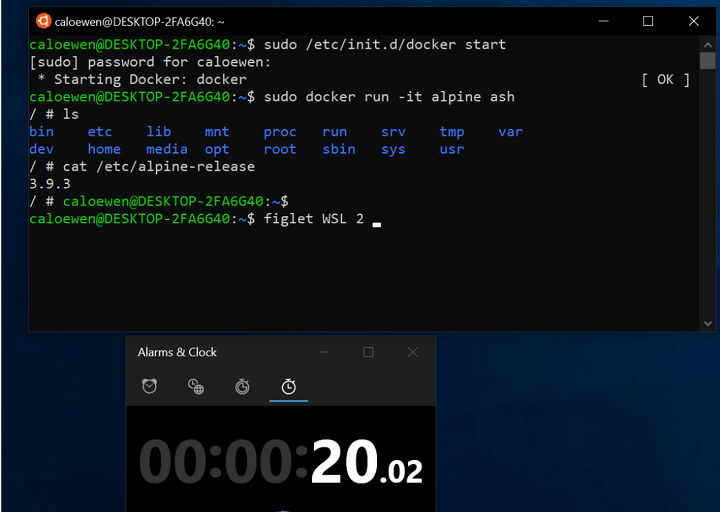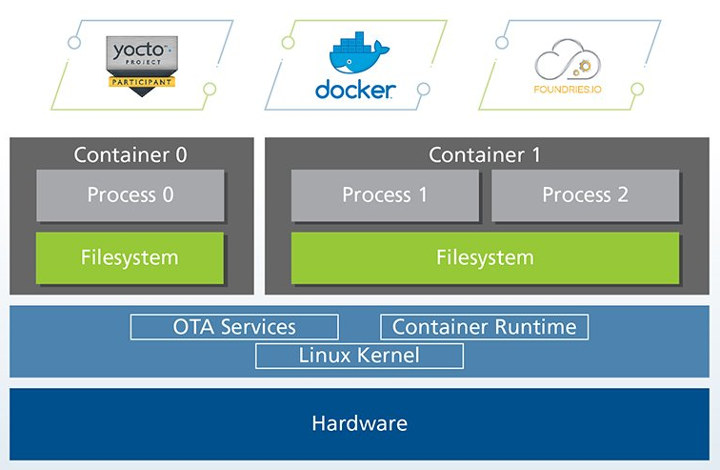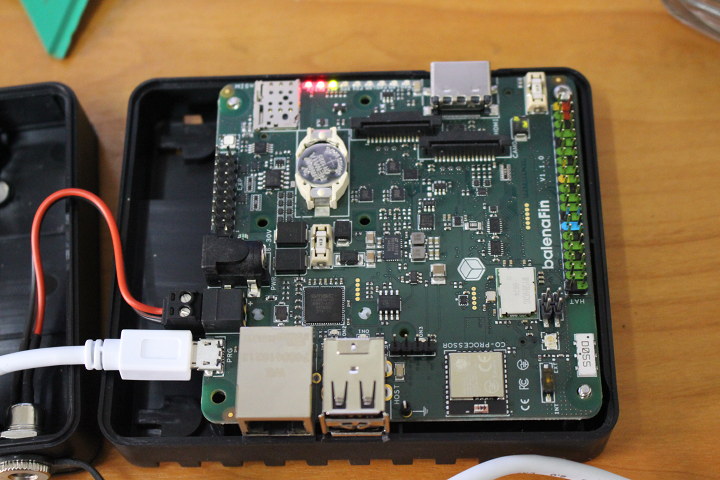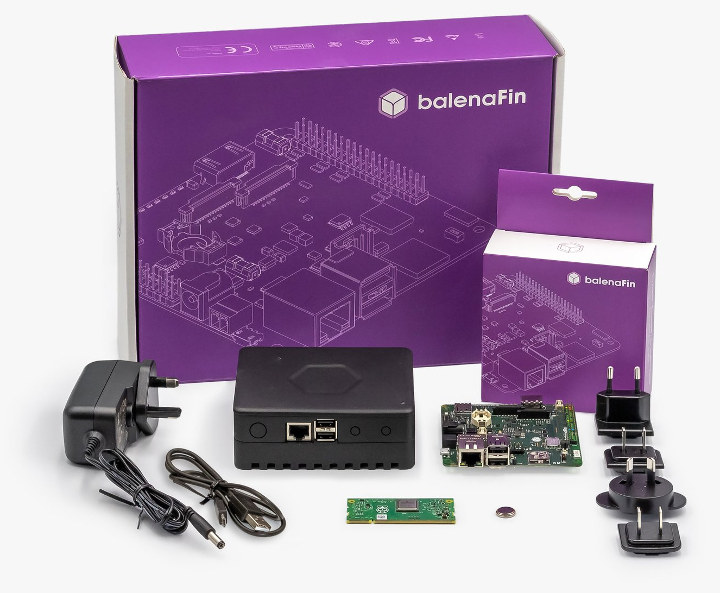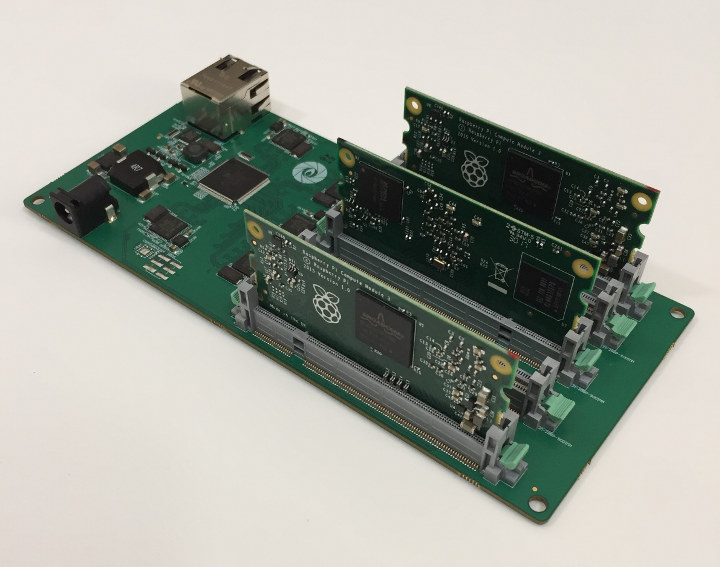Arm TechCon will take place on October 8-10, 2019 at San Jose Convention Center to showcase new solutions from Arm and third-parties, and the company has now published the agenda/schedule for the event. There are many sessions and even if you’re not going to happen it’s always useful to checkout what will be discussed to learn more about what’s going on currently and what will be the focus in the near future for Arm development. Several sessions normally occur at the same time, so as usual I’ll make my own virtual schedule with the ones I find most relevant. Tuesday, October 8 09:00 – 09:50 – Open Source ML is rapidly advancing. How can you benefit? by Markus Levy, Director of AI and Machine Learning Technologies, NXP Over the last two years and still continuing, machine learning applications have benefited tremendously from the growing number of open source frameworks, tools, […]
Turing Pi Clusterboard Takes up to 7 Raspberry Pi Compute Modules
We’ve already covered several cluster solutions based on Raspberry Pi boards such as Bitscope Blade with up to 40 Raspberry Pi boards, a 16 Raspberry Pi Zero cluster board prototype, Circumference “datacenter-in-a-box” with up to 32 Raspberry Pi 3 B+ boards. If you want something more compact, it makes sense to develop a platform with Raspberry Pi Compute Modules instead, and we’ve already published news about MiniNodes Raspberry Pi 3 CoM Carrier Board that supports up to to 5 Compute Modules 3/3+ last year. There’s now another option with Turing Pi Clusterboard support up to 7 Compute Modules for applications leveraging Kubernetes, Docker, Jupyter Notebook, machine learning (TensorFlow/Caffe), and serverless stack. Turing Pi specifications: 7x Sockets for Raspberry Pi Compute Module 3/3+ Storage – 7x microSD card slots Video Output – 1x HDMI port, MIPI DSI connector Audio – 1x 3.5mm audio jack Camera I/F – 2x MIPI CSI connectors […]
Create Minimal Debian Upstream Images with Debos and Armbian
[Update June 28: Post updated with correct procedure thanks to Collabora help] Armbian provides lightweight Debian or Ubuntu images for various Arm Linux SBC, and over the years has become the recommended source for stable firmware images for boards part of Orange Pi & Banana Pi families, and others. Uncompressed images are still over 1GB and come with Armbian-specific tools, kernel and bootloader. If you’d like to leverage Armbian images, but instead create a Debian upstream image with only the packages you intend to use, Collabora explains how to do just that with Orange Pi Zero +2 H5 and Libre Computer AML-S905X-CC (aka Le Potato) boards using Debos Debian OS builder. I’ve decided to give a try at the instructions for Orange Pi Zero Plus2 H5 in my laptop running Ubuntu 18.04 to better understand how this all works. I’ll assume you’ve already installed Docker, and made sure you’ve got […]
Windows Subsystem for Linux 2 Gets a Linux Kernel, Faster File System, Docker Support
Microsoft first introduced Windows Subsystem for Linux in 2016 in order to let developers runs bash command from Ubuntu user space without having to install Ubuntu in a virtual machine or container. It relies on the Windows kernel with a library converting Linux system calls into ones compatible with Windows. Performance is great until you start to involve file systems calls, for example during code compilations, something that’s fairly common for developers… Microsoft has been working on solving this performance issue, and compatibility issues with software such as Docker, and is now close to releasing Windows Subsystem for Linux 2 (WSL 2) featuring its own Linux 4.19 kernel instead of the Windows kernel plus a translation layer. WSL 2 uses virtualization technology to run its custom Linux kernel inside of a lightweight utility virtual machine (VM) which takes just 2 seconds to boot. That also means there will be separate […]
Toradex Torizon Industrial Linux Distribution Targets Windows Developers
When we interviewed Toradex right before Embedded World 2019, they told us they would focus on their new software offering called Torizon, an easy-to-use industrial Linux Platform, especially targeting customers are coming from the Windows / WinCE environment or who have only experience with application development and are not embedded Linux specialists. The company has now officially launched Torizon, and provided more details about their industrial open source software solution especially optimized for their NXP i.MX modules. Torizon specifically relies on foundries.io Linux microPlatform which provides full system with a recent stable kernel, a minimal base system built with OpenEmbedded/Yocto, and a runtime to deploy applications and services in Docker containers. The microPlatform is part of TorizonCore (light blue section above) that also includes an OTA client (Aktualizr). TorizonCore is free open-source software, and serves as the base to run software containers. To get started, Torizon provides a Debian container […]
Getting Started with balenaFin Developer Kit, balenaOS and balenaCloud
balena Fin is a carrier board for Raspberry Pi Compute Module 3/3+ designed specifically for industrial applications leveraging fleet management services provided by Balena. I received balenaFin developer kit last month, and in the first part of the reviewed shows how to assemble the kit. I’m now had time to spend more time with the kit, as well as BalenaOS Linux based operating system optimized for running Docker containers on embedded devices, and balenaCloud services to manage a fleet of devices from a web dashboard. I’ve mostly followed the instructions in the getting started guides here and there, and will document what I had to do to prepare the image, flash it to the board, and load a sample docker application locally, and through balenaCloud. Downloading and Configuring BalenaOS for balena Fin You’ll find BalenaOS in the download page. While we are using hardware based on a Raspberry Pi Compute […]
balenaFin Raspberry Pi CM3+/Lite Developer Kit Launched for $179 and Up
Balena.io – previously known as resin.io – first unveiled Resin.io Project Fin in March 2018. The carrier board for Raspberry Pi CM3L was designed with the aim of easing the management of fleets of connected devices thanks to ResinOS operating systems and the ability to deploy apps packaged in containers through their balenaCloud service. The project had been renamed to balenaFin a little while ago, and the company has now announced availability of balenaFin 1.1 developer kit with various improvements including support for PoE, dual camera, and Raspberry Pi CM3+/Lite module. balenaFin v1.1 carrier board specifications with improvements highlighted in bold: Supported SoM Raspberry Pi Compute Module 3 Lite with Broadcom BCM2837 quad-core ARM Cortex A53 processor at 1.2GHz, 1GB RAM Raspberry Pi Compute Module 3+/Lite with Broadcom BCM2837B0 quad-core ARM Cortex A53 processor at 1.2GHz, 1GB RAM Storage – 8, 16, 32, or 64 GB industrial grade eMMC 5.1 […]
MiniNodes Raspberry Pi 3 CoM Carrier Board Takes up to 5 Compute Modules 3
Mininodes is known for their hosting services based on Arm development boards such as Cubieboard2, 96Boards Hikey, or Raspberry Pi 3, but the company unveiled their own hardware platform at Arm TechCon 2018 with miniNodes Raspberry Pi CoM (Computer-on-Module) carrier board that takes up to five Raspberry Pi Compute Modules 3. Beside the five sockets for CM3 / CM3L modules, the carrier board is also equipped with a gigabit Ethernet switch and RJ45 connector, as well as a DC jack to power the whole setup. The white round logo on the board most certainly means mininodes designed the board with Gumstix Geppeto web platform that allows you to fairly easily design your own custom boards in a web browser without having to draw schematics, and then handle the PCB layout. The company explains the Raspberry Pi 3 CoM Carrier Board can be used to provide edge compute capacity in remote […]



